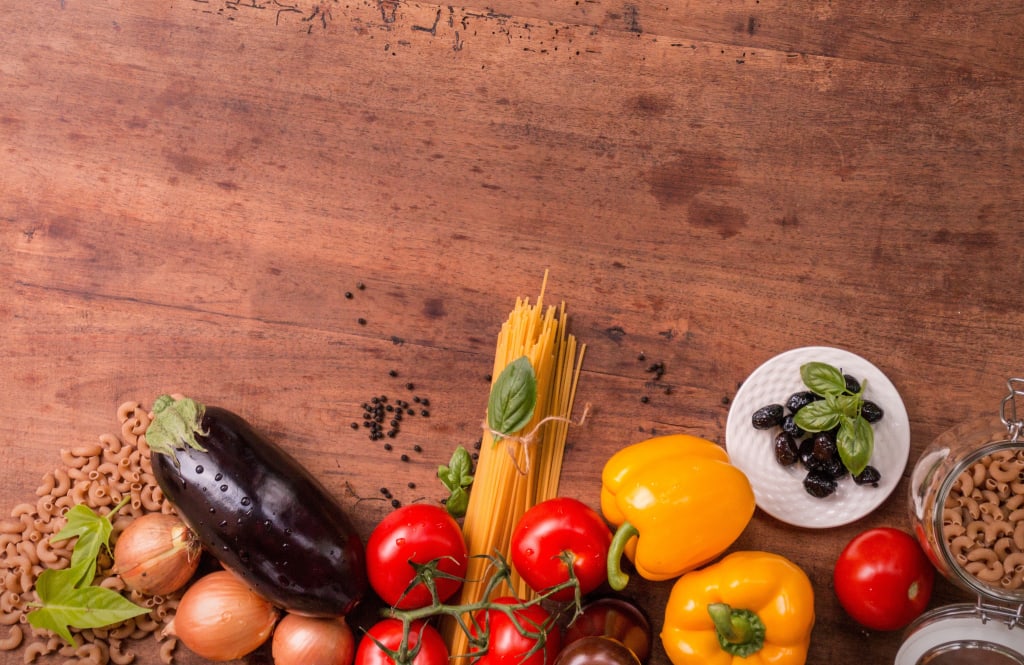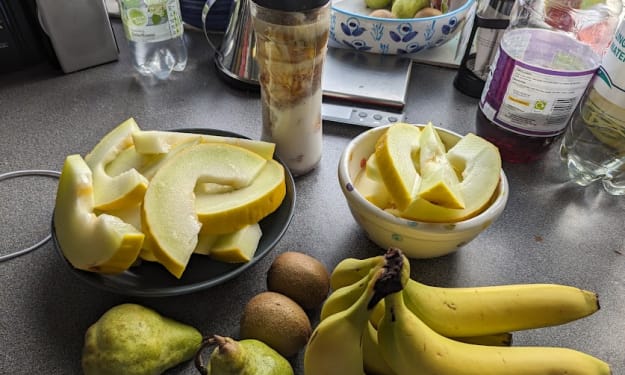Going Vegan
A Quick Guide to Beginning a Healthier, Happier Diet

What does it mean to be “vegan”?
A person who is vegan is one who does not eat or use animal products. This means that an individual would refrain from eating meat, egg, and dairy products and would also not purchase or use materials such as wool or leather. According to Forbes, 3 percent of Americans identity as being vegan.
Why become vegan?
There are many reasons someone would wish to not use animal products ranging from ethical, environmental, and health justifications. Many vegans disagree with the mass slaughter of animals in factory farming practices. Animal Equality reports the annual death toll of animals killed for food to reach 56 billion, not including fish and other sea creatures. The exploitation of these animals leaks into the dairy and egg industry, where a dairy cow with an average life span of 25 years dies around the age of five. The calves produced in this industry are typically slaughtered at a young age for veal. In the case of egg-laying chickens, the birds are crammed in small spaces (regardless of whether or not they are “cage free” or “free range”) and often de-beaked. Once the hens reach a point where they no longer produce enough eggs, they too are slaughtered.
Other people take into consideration the environmental impacts of eating meat. Factory farming is a major factor in deforestation as well as water and air pollution. As land is cleared away to provide space for livestock, a drastic amount of trees are removed. In addition, animal waste often leaks into water sources, contaminating public drinking water. Large gas emissions are also a main contributor to global warming.
In terms of personal wellness, Heathline reported that a vegan diet seems to lower blood sugar, protect against certain cancers, reduce the risk of heart disease, and help ease arthritis pain.
How to Transition
For most, making a dramatic switch in any aspect of life can be difficult, including changing what you put in your body.
The first step is to identify what products you would remove from your diet. Making an effort to read through the ingredient list of your usual groceries can help you get an idea of what not to include besides the obvious meat, eggs, and milk. Some foods, like certain snacks such as chips, may contain milk product that you might not suspect.
It may help to transition slowly by cutting out one thing at a time. For example, you may choose to indulge in a vegetarian diet before going vegan.
Sticking To It
At first, you may be drawn to certain foods you are used to eating. You may have the urge to enjoy a steak or have “cheat” days. It is important to remember that you are responsible for what goes into your body. Many people refrain from eating animal product most of the time but allow themselves to break from this once and awhile. Others are much more strict. It is up to you what standard you will hold yourself to. However, if you choose to restrict yourself, there are various ways to maintain your diet.
A big problem for most vegans is lack of options. While the world’s supply of edible plants is plentiful, many restaurants—especially fast food joints— are limited in providing plant-based foods. Looking up the menu online and viewing the options beforehand will help avoid this problem and eliminate businesses you will probably not want to visit.
Eating most meals at home or packing them to bring with you on-the-go is overall the best option. Be sure to stock up on fruits, vegetables, and plant-based proteins such as beans and nuts. Not only is this a healthier plan, but it is also more affordable. A $1 box of pasta will likely last longer than $10 of meat.
Most importantly, don’t allow the opinions of others to divert you. Though it is a mocked lifestyle, becoming vegan is always a personal, respectable choice. You will undoubtedly be questioned on your protein intake or receive lectures claiming your diet is wrong. Whatever your reason to make the switch, remember that intention and stand true to what you believe as an individual.
Sources:
Animal Equality. “Food” Animal Equality.
McCarthy, Niall. “Who Are America’s Vegans and Vegetarians?” Forbes. August 6, 2018.
Peter, Alina. “6 Science-Based Health Benefits of Eating Vegan” Healthline. September 23, 2016.
About the Creator
Telia Boice
I’m a 19-year-old journalism major from Ohio just trying to live her dreams






Comments
There are no comments for this story
Be the first to respond and start the conversation.